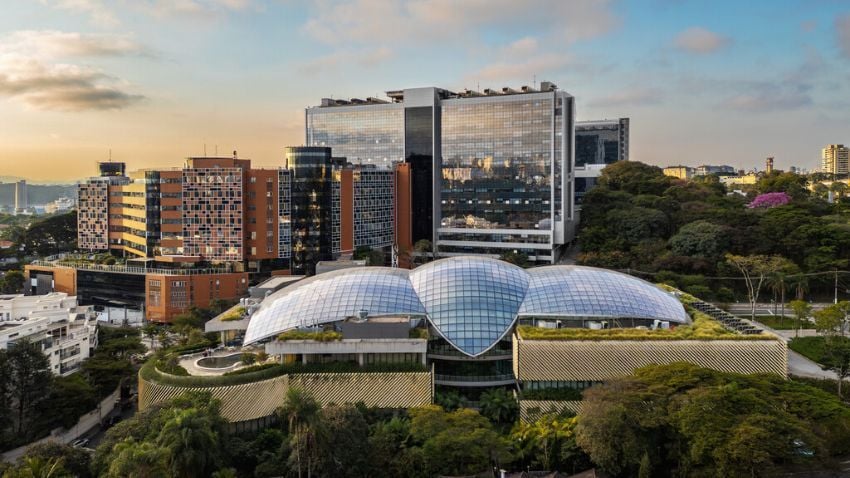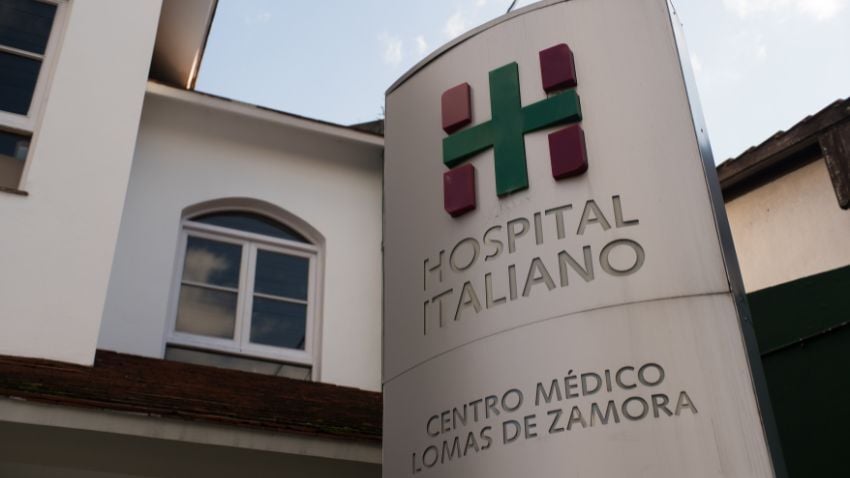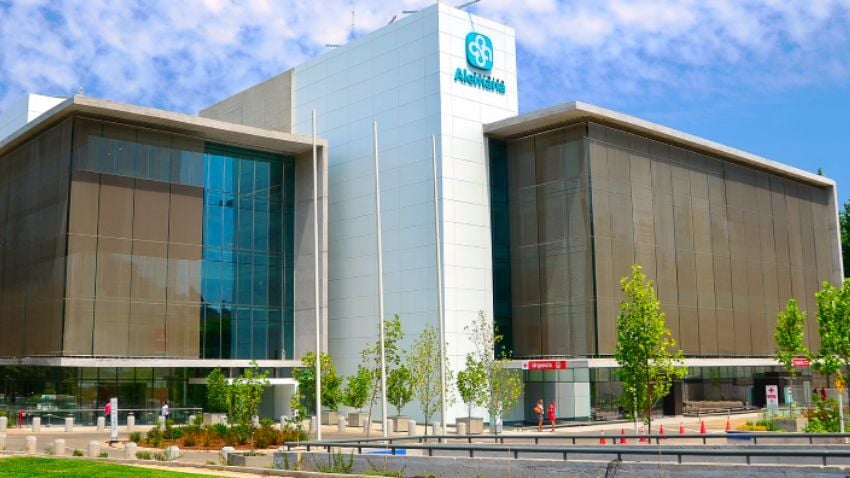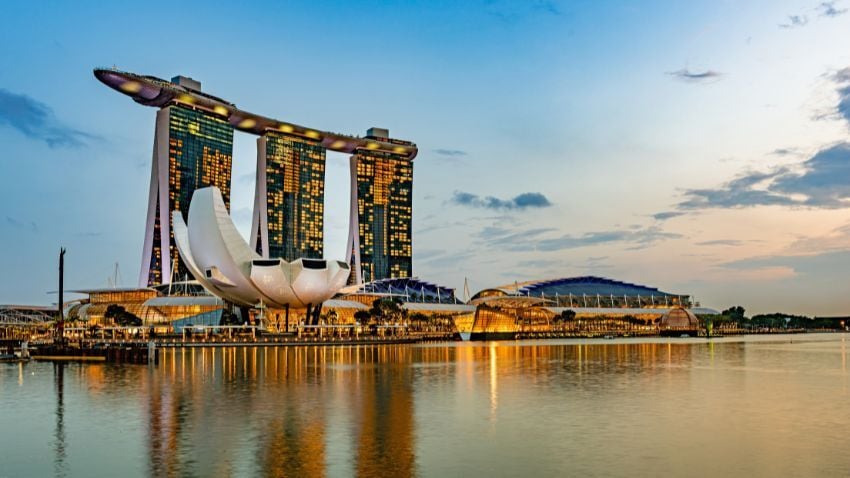Living In Singapore: Pros & Cons You Should Know
Singapore is often described as a city that works, and it totally deserves its reputation. This small island nation in Southeast Asia has built one...

7 min read
For many of us, going to the doctor has become something we try to avoid. Modern healthcare in the West is more of an obstacle course than a service, with endless waiting times, rushed appointments, and bills that arrive like nasty surprises. We postpone checkups, skip follow-ups, and silently hope minor issues will fix themselves. Of course, this is not because we don’t care about our health, but because the system makes it exhausting to care.
Now imagine the opposite: walking into a spotless private clinic, being seen by a specialist within the hour, and paying less than what you’d tip your waiter back home. There are no waiting lists, no layers of insurance bureaucracy, and no sense of being treated as just a number.
That reality exists across Latin America. Affordable and high-quality private healthcare is not an exception for expats in many countries in the region. What was once a region associated with budget living is now a magnet for retirees, remote workers, and digital nomads seeking peace of mind and medical security. Since the pandemic, this shift has only grown stronger. People are choosing countries where private healthcare is affordable, reliable, and humane.
In this article, we’ll explore seven Latin American nations that lead in affordable, high-quality healthcare. Each one has developed its own path toward affordable excellence, combining skilled professionals, modern hospitals, and systems that welcome foreigners rather than shut them out.

Across Latin America, expats find high-quality care, quick access, skilled doctors, and affordable prices in healthcare that feels personal, human, and truly trustworthy
The best healthcare isn’t about shiny buildings but about trust, access, professionalism, and affordability. You need confidence in who’s treating you. In all of these issues, Latin American countries offer excellent solutions:
Across Latin America, many top hospitals are internationally accredited and staffed by doctors trained in the U.S., Canada, or Europe. They offer world-class care with more personal attention.
There are no waiting lists, insurance bureaucracy, or the sense of being just a number. Expats can walk into modern clinics, speak to English-speaking doctors, or even use telemedicine — all with minimal red tape.
The biggest advantage of most healthcare services in the region is that quality healthcare is much more affordable than in the West.
Let’s start exploring the unique opportunities in Latin America regarding healthcare services.

Brazil offers world-class private healthcare, led by top hospitals like Albert Einstein. Expats enjoy high-quality treatment, fast access, and affordable costs compared to Western countries
Although Brazil has the SUS (Sistema Único de Saúde), a universal public system, expats usually opt for private healthcare because SUS only covers emergency care for non-residents, and its quality is low. There is a thriving network of private hospitals offering world-class treatment in Brazil that rivals the best in the United States or Europe.
In major cities like São Paulo, Rio de Janeiro, and Porto Alegre, the private sector has set the regional standard for excellence, home to elite institutions such as Hospital Israelita Albert Einstein, Sírio-Libanês, or Hospital das Clínicas da Universidade de São Paulo.
Basic insurance coverage ranges from $60 to $100 USD/month, including medical visits, hospitalization, and more. The out-of-pocket cost for a doctor's visit can vary depending on the city, the quality of the hospital, and the specialty you seek, ranging from $60 to $100 USD.
As in most of the other Latin American countries, the private healthcare system in Mexico is expanding and improving quickly, alongside the public healthcare system, with universal coverage. Modern cities such as Mexico City, Monterrey, and Puebla have some of the best hospitals in the region, accredited by international institutions. Hospital Médica Sur in Mexico City, for instance, has a global reputation as one of the best hospitals in the world.
Legal residents can enroll in the public healthcare system (IMSS) by paying a modest yearly premium. Still, many choose to stay fully in the private system, where costs are reasonable and service is fast. You’ll find English-speaking doctors, short wait times, and specialists trained in the U.S. or Europe in the private hospitals.
When it comes to cost, Mexico is one of the best deals anywhere in the Western Hemisphere. A private doctor’s visit in a major city usually runs $20–$40 USD, while specialists might charge $40–$60 USD. Even a visit to a top-tier private clinic rarely costs more than $80 USD. Mexican private insurance providers charge $800 to $3,000 USD per year. However, many expats don’t bother with insurance at all. They simply pay out of pocket, since even surgeries such as cesarean section or appendectomy cost a small fraction of what they would in the U.S.

Argentina offers affordable, high-quality private care, with top hospitals like Hospital Italiano. Expats enjoy skilled doctors, short wait times, and excellent medical standards
Argentina’s healthcare runs on three main pillars: a public system (free for all), social security-based mutuals for workers, and a robust private sector. The public hospitals handle most emergencies and general care, while the private system caters to those who want shorter wait times and higher comfort. Many of the country’s top doctors work in both sectors, which means the same cardiologist who teaches at a public university hospital might see private patients in the afternoon.
The best care is concentrated in the big cities, such as Buenos Aires, Córdoba, and Mendoza. Healthcare institutions like Hospital Italiano de Buenos Aires and the Hospital Alemán consistently appear in top-tier rankings for infrastructure and equipment.
Private healthcare is still remarkably affordable. A general consultation typically costs around $20–$40 USD, while visits to specialists in Buenos Aires’ best clinics may reach $50–$70 USD. Even complex procedures like knee surgery or childbirth are typically 70–80% cheaper than in the U.S. Private insurance, known locally as medicina prepaga, is available to expats. Plans with broad hospital access start around $60–$100 USD per month for younger individuals, and $150–$250 USD for comprehensive coverage with top clinics.
If there’s a country that has quietly transformed its healthcare system into one of the best in the Americas, it’s Colombia. Once known for its turbulent past, Colombia now ranks among the top healthcare providers in Latin America.
The backbone of this success is Colombia’s EPS system — short for Entidades Promotoras de Salud. A hybrid network where public and private providers work together to offer universal coverage. Residents can join the system and receive access to everything from general checkups to specialized surgeries. For those who want faster service or direct access to premium hospitals, private insurance options are plentiful and still remarkably affordable.
The best care is found in the country’s major cities, such as Medellín, Bogotá, and Cali. These cities are home to internationally recognized hospitals such as Fundación Valle del Lili, Hospital Pablo Tobón Uribe, and Clínica Barraquer. Because of rising medical tourism, Medellín is now called the healthcare capital of Latin America.
Besides the quality care and English-speaking doctors in Colombia, costs are another advantage of healthcare here. A general practitioner typically costs between $30–$45 USD, and a specialist visit ranges from $40–$60 USD. Private health insurance plans range from $60–$150 USD per month, depending on coverage. Even comprehensive surgeries often come in at 70–80% less than what you would pay in North America.

Chile offers stable, high-quality healthcare, with top hospitals like Clínica Alemana. Expats benefit from fast access, advanced digital systems, and affordable medical costs
Chile’s healthcare system is often described as the most stable and well-established in Latin America. The healthcare system operates on two main tracks: the public system (FONASA), which covers about 80% of the population, and the private system (Isapres), which serves higher-income citizens and residents who choose to pay extra for faster access and private hospitals. For many, joining an Isapres plan means short wait times, private rooms, and direct access to Chile’s best doctors and specialists.
The quality of care is remarkably consistent across the country, but Santiago, Viña del Mar, and Concepción are the true healthcare centres. Santiago’s Clínica Alemana, Hospital Clínico UC Christus, and Clínica Las Condes regularly rank as the best hospitals in the country. Electronic health records, telemedicine, and digital appointment systems are common, and the country’s healthcare digitalization is years ahead of most neighbouring countries.
What makes the high quality of healthcare even more attractive is the cost of these services. A general practitioner's fee is typically around $35-$60 USD, and specialist consultation fees are between $70-$100 USD. Premium plans, which include maternity coverage, preventative screenings, and hospital stays at top-tier facilities, can reach $250–$300 USD monthly. However, paying out of pocket for routine care can cost far less than insurance plans, depending on your healthcare issues.
Panama has become one of Latin America’s most dependable healthcare hubs for locals and thousands of expats who now call it home. With its strategic location, U.S.-trained doctors, and bilingual hospitals, Panama can provide a healthcare experience that feels both familiar and uncomplicated.
It runs a typical dual public–private system. Most expats prefer the private healthcare system since the cost is quite affordable and it offers faster, premium, and more personalized service. In Panama City, you’ll find world-class facilities such as Hospital Punta Pacífica (affiliated with Johns Hopkins Medicine) and Panama Clinic. All offer cutting-edge diagnostics and modern surgical units.
A private doctor’s consultation in Panama City typically costs $40–$70 USD, and specialist visits average around $70–$120 USD. Surgeries and advanced imaging like MRIs or CT scans are often 60–70% cheaper than in the U.S. Local insurance plans start at around $100 USD per month. The country’s Pensionado Program — one of the world’s most famous retirement visas — sweetens the deal by offering discounts of 15–20% on healthcare services.
Costa Rica’s system is built on a public–private partnership that actually works. The Caja Costarricense de Seguro Social (CCSS), known simply as “La Caja”, provides universal coverage to all residents. However, private clinics and hospitals provide faster and premium healthcare service, often at prices that are still modest compared to U.S. or European standards. Costa Rica is famous for its medical tourism, attracting patients for dental, orthopedic, and cosmetic procedures. They are often bundled with recovery stays in lush mountain lodges or beach resorts. Because of the care, comfort, and climate, the country has earned a global reputation for health and longevity.
The best care is found in San José and nearby suburbs like Escazú and Santa Ana, where top-tier hospitals such as Hospital CIMA, Hospital Clínica Bíblica, and Hospital La Católica are located. Appointments are straightforward to book, many doctors speak fluent English, and even public hospitals feel organized and transparent.
A private doctor’s consultation usually costs $40–$60 USD, and specialist visits range from $60–$100 USD. If you join La Caja, your costs are even lower — the average monthly payment for expats ranges from $60–$150 USD, depending on income. Private health insurance is optional, but local and international plans are available for $100–$250 USD per month, which provides access to private hospitals and international coverage.

As Western healthcare costs soar, more people turn to Latin America for quality, affordable care. Moving here can transform your life, this is only the beginning of the opportunities ahead
Medical tourism is booming, driven by unbearable costs and declining quality in many Western systems. The trend is obvious: patients from so-called “developed” countries are increasingly flying to Latin America for care. The truth is, the Western healthcare model is breaking down, and there’s little governments can do to fix it.
Meanwhile, Latin America offers a different story. Quality, affordable private healthcare isn’t just a perk but proof of how dramatically your life can improve by living here. Healthcare is only the beginning of what you can have. These countries offer countless opportunities for those who value freedom, affordability, and a higher quality of life.
If you’re ready to explore your options, download our free report on Plan-B Residencies & Instant Citizenships and begin charting your path today.
If you want the best intel from the expat world, including profitable offshore opportunities, little-known tax-saving strategies, and hard-won insights on immigration, passports, and Plan-B residencies, all delivered to your inbox every single week, then join our daily correspondence, EMS Pulse®. Currently enjoyed by over 84,000 expats and expat-hopefuls worldwide. Fill in the form below to join our newsletter free:

Written by Mikkel Thorup
Mikkel Thorup is the world’s most sought-after expat consultant. He focuses on helping high-net-worth private clients to legally mitigate tax liabilities, obtain a second residency and citizenship, and assemble a portfolio of foreign investments including international real estate, timber plantations, agricultural land and other hard-money tangible assets. Mikkel is the Founder and CEO at Expat Money®, a private consulting firm started in 2017. He hosts the popular weekly podcast, the Expat Money Show, and wrote the definitive #1-Best Selling book Expat Secrets - How To Pay Zero Taxes, Live Overseas And Make Giant Piles Of Money, and his second book: Expats Guide On Moving To Mexico.

Singapore is often described as a city that works, and it totally deserves its reputation. This small island nation in Southeast Asia has built one...

Panama’s geographic size is modest, but its global relevance is not. The country connects two oceans and two continents, operates on a dollarized...

Honduras’ newly elected president, Nasry Asfura of the conservative National Party, was sworn in on January 27, 2026. The election, held on November...